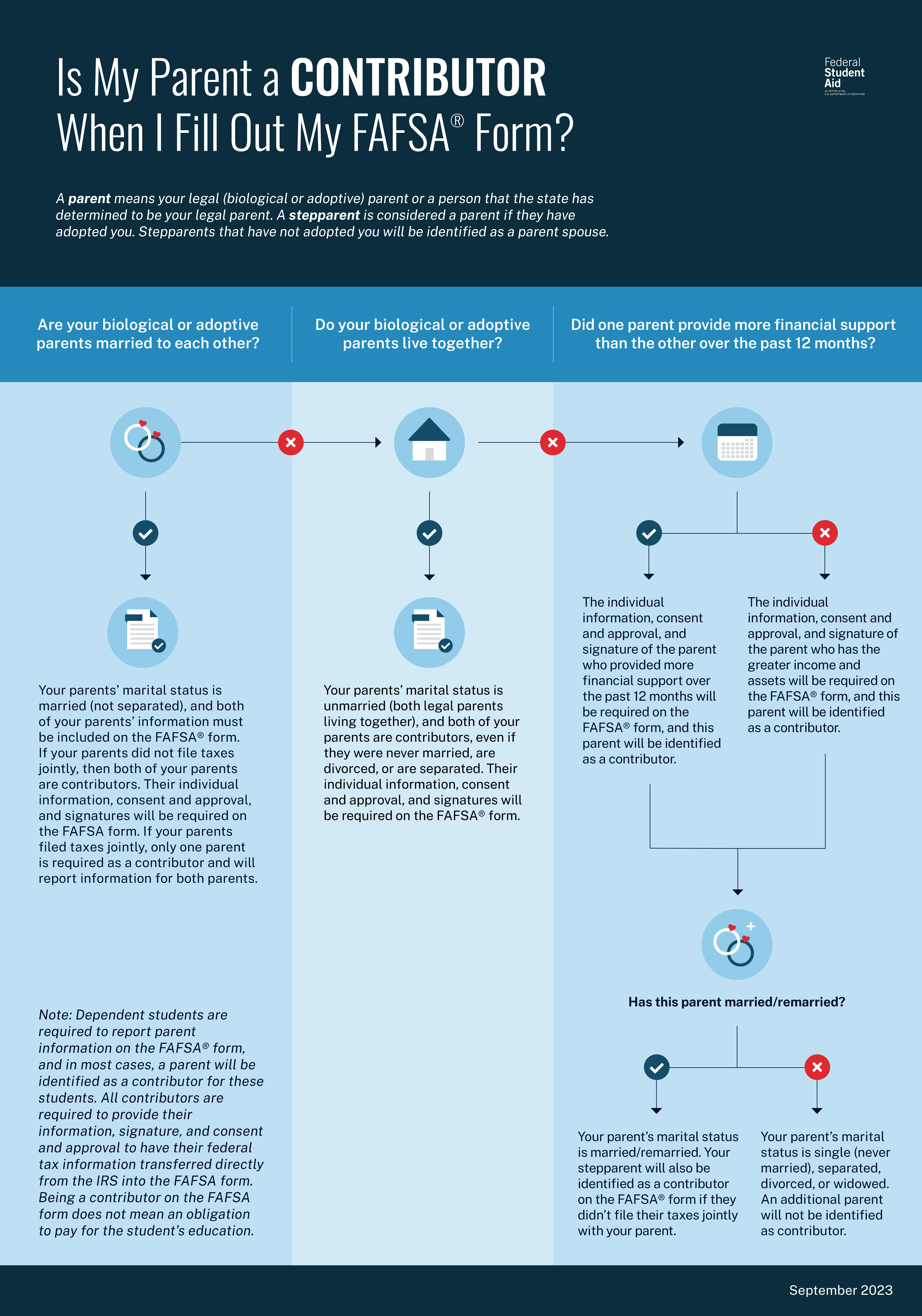Navigating parenting differences can be challenging, especially when you & your partner have unique styles. However, finding harmony is crucial for The well-being of your family. It is important To communicate openly, listening To each other’s perspectives & concerns. Compromise & flexibility are key in finding common ground & creating a parenting approach that respects both partners’ styles. Additionally, seeking support from professionals & engaging in regular discussions can help build a strong foundation for co-parenting. By understanding & appreciating each other’s differences, you can create a harmonious environment for your children To grow & thrive.
Navigating Parenting Differences: Finding Harmony When You and Your Partner Have Unique Styles. Discover how To navigate parenting differences & find harmony when you & your partner have unique styles. Get practical tips & advice To create a cohesive parenting approach that works for both of you. Say goodbye To conflicts & hello To a united front in raising your children.
What is Navigating Parenting Differences: Finding Harmony When You & Your Partner Have Unique Styles & how does it work?
Navigating Parenting Differences: Finding Harmony When You & Your Partner Have Unique Styles is a concept that focuses on bridging The gap between parents who have different approaches To parenting. It aims To create a harmonious environment for both parents & children by understanding & accepting each other’s unique styles.

Every parent has their own set of beliefs, values, & parenting techniques that they bring To The table. When these differences clash, it can lead To conflicts & tension within The family. Navigating Parenting Differences: Finding Harmony When You & Your Partner Have Unique Styles aims To address these conflicts & find common ground.
The concept works by promoting open communication & mutual respect between partners. It encourages parents To discuss their parenting styles, understand each other’s perspectives, & find ways To compromise. By acknowledging & accepting that both parents have a valuable contribution To make, they can work together To create a parenting approach that benefits their children.
Real history of Navigating Parenting Differences: Finding Harmony When You & Your Partner Have Unique Styles
The concept of Navigating Parenting Differences: Finding Harmony When You & Your Partner Have Unique Styles has its roots in The recognition of The importance of a united approach To parenting. Historically, parenting roles were often divided, with one parent taking on a more dominant role while The other played a supportive role.
As society & gender roles evolved, The need for equal partnership in parenting became more apparent. The concept of Navigating Parenting Differences: Finding Harmony When You & Your Partner Have Unique Styles emerged as a way To address The challenges that arise when parents have different styles & beliefs about parenting.
How To Navigating Parenting Differences: Finding Harmony When You & Your Partner Have Unique Styles effectively
Implementing Navigating Parenting Differences: Finding Harmony When You & Your Partner Have Unique Styles requires open & honest communication between partners. Here are some effective strategies To implement this concept:
1. Acknowledge & respect differences: Recognize that both partners have unique strengths & perspectives. Respect each other’s views & avoid judging or criticizing.
2. Listen actively: Take The time To listen & understand each other’s viewpoints. This can help you find common ground & identify areas where compromise is possible.
3. Find common goals: Identify shared goals & values as parents. By focusing on what you both want for your children, you can work towards a unified parenting approach.
4. Seek professional help if needed: If you are unable To navigate your parenting differences on your own, consider seeking The help of a family therapist or counselor. They can provide guidance & support in finding common ground.
Benefits of using Navigating Parenting Differences: Finding Harmony When You & Your Partner Have Unique Styles
Using Navigating Parenting Differences: Finding Harmony When You & Your Partner Have Unique Styles can have numerous benefits for both parents & children. Some key benefits include:
1. Improved communication: By actively addressing parenting differences, couples can strengthen their communication skills & develop a deeper understanding of each other.
2. Enhanced teamwork: Working together To find solutions can improve teamwork between parents. This can create a more harmonious & supportive environment for both parents & children.
3. Consistency for children: A unified parenting approach provides children with a consistent set of rules & expectations, which can promote a sense of stability & security.
4. Increased parental well-being: By navigating parenting differences, partners can reduce stress & tension in their relationship, leading To improved overall well-being for both parents.
Challenges associated with Navigating Parenting Differences: Finding Harmony When You & Your Partner Have Unique Styles & potential solutions
Navigating Parenting Differences: Finding Harmony When You & Your Partner Have Unique Styles can present its own set of challenges. Some common challenges include:
1. Deeply ingrained beliefs: Parents may have deeply ingrained beliefs about parenting that can be difficult To change. Solutions include open-mindedness, willingness To compromise, & seeking professional help if needed.
2. Different parenting values: Partners may have different values when it comes To parenting, leading To conflicts. Solutions involve finding common ground & focusing on shared goals & values.
3. Communication barriers: Poor communication can hinder The implementation of this concept. Solutions include active listening, expressing emotions effectively, & seeking support from a professional mediator if necessary.
Future trends expected in Navigating Parenting Differences: Finding Harmony When You & Your Partner Have Unique Styles
As society continues To evolve, The concept of Navigating Parenting Differences: Finding Harmony When You & Your Partner Have Unique Styles is likely To undergo further development. Some potential future trends & innovations include:
1. Technology-assisted parenting mediation: Online platforms & apps that facilitate parenting mediation & provide resources for navigating parenting differences may become more prevalent.
2. Parenting education & support programs: Increased awareness & recognition of The importance of navigating parenting differences may lead To The development of more comprehensive parenting education & support programs.
3. Cultural & diversity inclusion: As awareness of cultural & diversity issues increases, future trends may involve incorporating these factors into The concept of Navigating Parenting Differences: Finding Harmony When You & Your Partner Have Unique Styles.
Navigating Parenting Differences: Finding Harmony When You & Your Partner Have Unique Styles is an essential concept for creating a harmonious parenting environment. By understanding, accepting, & working together, parents can ensure The well-being & happiness of both themselves & their children.

Navigating Parenting Differences: Finding Harmony When You & Your Partner Have Unique Styles
Understanding Different Parenting Styles
Every parent has their own unique style of parenting, which is influenced by their own upbringing, values, & beliefs. Navigating parenting differences can be challenging, especially when you & your partner have contrasting styles. However, finding harmony is crucial for The well-being & development of your children.
It’s important To note that there is no right or wrong way To parent. What works for one family may not work for another. The key is To find a balance that respects each parent’s style while also meeting The needs of your children.
According To an article from A Fine Parent, there are several common parenting styles:
- Authoritarian: This style is characterized by strict rules & high expectations. Parents using this style often value discipline & obedience.
- Permissive: This style is characterized by lenient rules & few consequences. Parents using this style often prioritize nurturing & flexibility.
- Authoritative: This style is a balance between strict rules & nurturing. Parents using this style provide structure while also allowing for independence & individuality.
- Uninvolved: This style is characterized by a lack of rules & emotional involvement. Parents using this style may be neglectful or overwhelmed.
Open Communication
One of The most important factors in navigating parenting differences is open communication. It’s crucial for you & your partner To have honest & respectful conversations about your parenting styles, goals, & concerns.
Express your thoughts & opinions without judgment, focusing on understanding each other’s perspectives. Active listening is key – make an effort To truly hear & consider your partner’s point of view. Finding common ground & compromise will help create a harmonious parenting approach.
External support can also be beneficial in improving communication & understanding. Websites like 7 Cups offer resources & forums where you can seek advice from experts & connect with other parents facing similar challenges.
Respecting Each Other’s Strengths
While parenting differences can create tension, it’s important To recognize & appreciate each other’s strengths. Each parent brings unique qualities & skills To The table, & acknowledging these strengths can help create a more balanced & effective parenting dynamic.
Discuss & identify The areas where each of you excels, whether it’s providing emotional support, setting boundaries, or encouraging independence. By recognizing & valuing each other’s strengths, you can work together To create a more holistic parenting approach.
Setting Common Goals
Setting common parenting goals is essential in finding harmony in your parenting styles. Identify The values & principles you both want To instill in your children & discuss how you can align your parenting approaches To achieve these goals.
Create a shared vision of The kind of individuals you want your children To become. This will help guide your parenting decisions & provide a foundation for consistent parenting practices.
Flexibility & Adaptability
Parenting styles can evolve as your children grow & develop. It’s important To remain flexible & adaptable, reassessing your parenting approaches along The way.

As your children’s needs change, be willing To adjust your parenting style To accommodate their individual personalities & developmental stages. Regularly communicate with your partner about any necessary adjustments To ensure you stay in sync.
Managing Conflict
Conflict is inevitable in any relationship, & parenting is no exception. When faced with disagreements regarding parenting styles, it’s important To handle conflict constructively.
Avoid blaming or criticizing each other. Instead, focus on finding common ground & working towards a solution that benefits your children. Consider seeking professional help, such as family therapy or couples counseling, To navigate more challenging conflicts.
Embracing Self-Reflection
Self-reflection is an important aspect of navigating parenting differences. Take The time To reflect on your own parenting style, acknowledging areas where you may need To adjust or grow.
Be open To self-improvement & consider how your own upbringing may be influencing your parenting choices. By continuously learning & growing as a parent, you can create a more harmonious & fulfilling parenting experience.
In my own experience, navigating parenting differences has required open communication, compromise, & a willingness To learn from my partner. By embracing our unique strengths & setting common goals, we have been able To create a balanced & harmonious approach To parenting.

The Journey of Parenting
Parenting is a beautiful journey that brings joy, challenges, & a rollercoaster of emotions. It is an experience like no other, full of love, laughter, & tough decisions. As parents, we strive To provide The best possible upbringing for our children, but what happens when we & our partners have unique parenting styles? Navigating those differences can be tricky, but with open communication & willingness To compromise, it is possible To find harmony in your parenting journey.
Understanding Parenting Styles
Every parent has their own parenting style, shaped by their upbringing, values, & beliefs. It is important To recognize & respect that each style is valid, as long as it prioritizes The well-being & happiness of The child. Some common parenting styles include authoritative, permissive, uninvolved, & authoritarian. While each style has its pros & cons, The key is finding a balance that works for both you & your partner.
Open Communication: The Key To Success
When it comes To navigating parenting differences, open communication is crucial. Sit down with your partner & discuss your individual parenting styles, concerns, & expectations. Listen To each other’s perspective without judgment & try To find common ground. It is important To remember that compromise is necessary for a harmonious parenting journey.
Parenting with Empathy
Parenting with empathy means seeing things from your child’s perspective & understanding their emotions & needs. It is essential To incorporate empathy into your parenting style, regardless of your individual differences with your partner. By prioritizing your child’s well-being & practicing empathy, you can create a nurturing & supportive environment for their growth & development.
Seeking Professional Help
Sometimes, navigating parenting differences can become challenging & overwhelming. In such cases, seeking professional help can be beneficial. Family therapists or counselors can assist you & your partner in finding common ground, understanding each other’s perspectives, & developing effective parenting strategies. Don’t hesitate To reach out for support whenever needed.
The Power of Teamwork
Parenting is a team effort, & teamwork plays a significant role in finding harmony when you & your partner have unique parenting styles. It means working together, respecting each other’s opinions, & making decisions that are best for your child. Embracing The concept of teamwork strengthens your relationship with your partner & improves The quality of your parenting journey.
Embracing Differences
Instead of viewing parenting differences as a negative aspect, embrace them as an opportunity for growth & learning. Remember, diversity in parenting styles can bring different strengths & perspectives To your child’s life. Encourage each other’s unique qualities & appreciate The varying approaches you & your partner bring To parenting.
Creating Consistency
While embracing differences is important, creating consistency in certain areas of parenting is equally crucial. Identify key aspects where consistency is necessary, such as discipline, routines, & values. Find common ground & establish clear guidelines To ensure your child receives a consistent & stable upbringing, despite The differences in your parenting styles.
Using Nutrition To Support Harmony
Nutrition plays a significant role in a child’s development & overall well-being. Using nutrition as a tool can help support harmony in your parenting journey. Understanding each other’s feeding styles & practices is essential in providing a well-balanced & nourishing diet for your child. Visit mamaknowsnutrition.com To learn more about different feeding styles & practices.
To better understand parenting styles, let’s compare a few key aspects:
| Parenting Styles | Authoritative | Permissive | Uninvolved | Authoritarian |
|---|---|---|---|---|
| Emphasis on Rules & Discipline | ✅ | ❌ | ❌ | ✅ |
| Open Communication | ✅ | ✅ | ❌ | ❌ |
| Parental Involvement | ✅ | ✅ | ❌ | ❌ |
| Flexibility | ✅ | ✅ | ✅ | ❌ |
| Supports Independence | ✅ | ❌ | ✅ | ❌ |
Embracing The Unique Journey
Parenting is a unique journey for each family, filled with its own trials & triumphs. Embrace The differences in your parenting styles & view them as an opportunity for growth. Remember To communicate openly, practice empathy, & seek professional help when needed. By working together as a team & prioritizing your child’s well-being, you can find harmony & create a loving & supportive environment for your family.
Finally, I can personally attest To The challenges & rewards of navigating parenting differences. In my own experience, I have learned that open communication, empathy, & a willingness To compromise are The keys To finding harmony. Everyday is a learning process, but The love & joy that comes with parenting make it all worthwhile.
How do you navigate parenting differences when both partners have unique styles?
Navigating parenting differences requires open communication, understanding, & compromise. It is essential To have respectful conversations To find common ground & create a harmonious parenting approach.
What if my partner’s parenting style is drastically different from mine?
When parenting styles are drastically different, it can be challenging To find a middle ground. It is crucial To prioritize The well-being of The child & seek professional help, such as counseling or therapy, To assist in developing strategies for alignment & compromise.
How can we find harmony in our parenting despite our unique styles?
Finding harmony in parenting despite unique styles requires active listening & finding common goals. Focus on shared values & principles, & work together To develop a parenting plan that incorporates both partners’ perspectives.
What if our parenting differences lead To conflicts & disagreements?
Conflicts & disagreements are natural in any relationship, particularly when it comes To parenting. It is crucial To address these issues constructively, seeking compromise & understanding. Professional guidance or couples therapy can be beneficial in resolving conflicts & finding common ground.
How can we ensure our child’s needs are met when we have unique parenting styles?
Prioritizing The child’s needs should be at The forefront. Listen To your child, observe their reactions, & be open To adjusting your parenting styles accordingly. Regular communication between you & your partner is essential To ensure your child’s physical, emotional, & psychological needs are being met.
Can differences in parenting styles be beneficial for our child?
Yes, differences in parenting styles can provide a diverse perspective & enrich your child’s upbringing. It exposes them To various approaches & helps them develop adaptability & resilience. However, finding a balance between different styles is essential To create a stable & consistent environment for The child.
How can we foster mutual respect & understanding between partners with unique parenting styles?
Building mutual respect & understanding starts with open & non-judgmental communication. It is crucial To embrace each other’s differences, appreciate The strengths of your partner’s style, & acknowledge The impact both parenting styles can have on your child’s development.
What if we cannot find common ground despite our efforts?
If finding common ground seems impossible despite your efforts, it may be beneficial To seek professional help. Family therapists or parenting coaches can provide guidance & support in navigating parenting differences, helping you find strategies that work for both partners.
Conclusion
Navigating parenting differences can be challenging, but with open communication & a willingness To compromise, finding harmony is possible. It is important To remember that each parent brings their own unique experiences & perspectives To The table, & both should be valued & respected.
In order To find common ground, it is crucial To have honest conversations about parenting styles & preferences. By actively listening To each other’s viewpoints & discussing any conflicting beliefs or approaches, parents can work towards finding a middle ground that accommodates both their needs & values.
Flexibility is key when it comes To co-parenting. Recognizing that there may be multiple ways To successfully raise a child can help alleviate tension & foster a more harmonious parenting dynamic. It is okay for parents To have different styles, as long as they are willing To adapt & compromise when necessary.
Finding Harmony When You and Your Partner Have Unique Styles
Parenting is a learning process, & nobody has all The answers. It is important for parents To remember that they are a team & that their ultimate goal is To provide The best possible upbringing for their child. By working together, parents can discover strategies & techniques that integrate both their unique parenting styles, creating a healthy & supportive environment for their child To thrive in.
In conclusion, successfully navigating parenting differences requires effective communication, a willingness To compromise, & a commitment To creating a harmonious co-parenting environment. By embracing each other’s differences & focusing on what is best for The child, parents can find common ground & build a strong foundation for their family.
